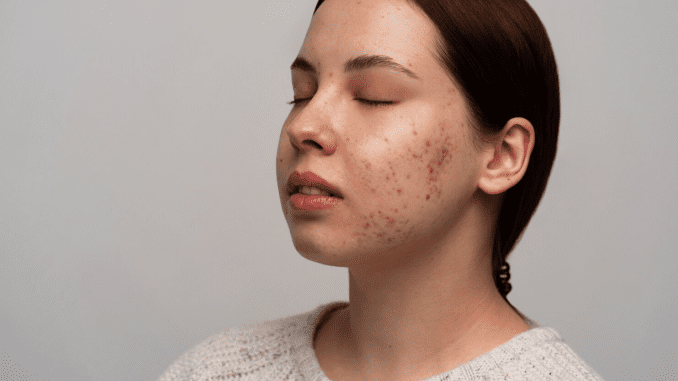
Many people have the common objective of having clear, acne-free skin that they want to keep that way.
Handling and tending to your face at home can be a useful strategy for enhancing the condition of your skin.
Let’s look at nine methods to maintain the youthful appearance of your skin.
1. Shower twice a day, once more after perspiring.
Make sure to include face washing in your morning and evening skin care routine, especially if you have oily skin or are prone to breakouts. It’s best to wash your skin as soon as you can after sweating because leaving perspiration on it and letting it dry might lead to acne and pimples.
2. Use a scrub
Exfoliation might assist in getting rid of extra dead skin cells. These cells can clog your pores and cause breakouts if they remain on your skin for an extended period of time.
3. Refrain from touching your face.
Breakouts can result by touching the face since it transfers bacteria to the skin. Keeping your hands from your face can help avoid this.
4. Retain hydration
Water consumption throughout the day may support the health of skin cells.
5. Lessen anxiety
Reducing stress wherever feasible is crucial. Excessive anger or emotional stress can trigger an acne outbreak or exacerbate existing signs.
6. Regularly wash your hair
Individuals who have oily skin may also have oily scalps. Overproduction of oil can spread to the face and promote pimples. Daily hair washing, or washing more frequently than usual, will help manage oil and lessen breakouts.
7. Steer clear of hot water
Using really hot water to wash your face can dry out or harm your skin. If you notice that your skin feels dry after taking a bath, try using lukewarm water instead.
8. Apply hydration
After a daily face wash, moisturizing is beneficial for all skin types. Maintaining hydration on the face may aid in regulating sebum production and shielding the skin from environmental harm. Pay attention to delicate products.
Products that are gentler can be better for skin, especially if it is sensitive. Rough sponges, washcloths, and loofahs are examples of tools that could be excessively harsh for the skin, leading to discomfort and injury. As an alternative, massaging a cleanser into the face with clean fingers could help avoid further irritation.
9. Consume a balanced diet
Consuming a diet high in plant-based foods and lean protein sources may help supply the nutrients required for good skin. All individuals may, however, have distinct trigger foods that exacerbate their symptoms.
Leave a Reply